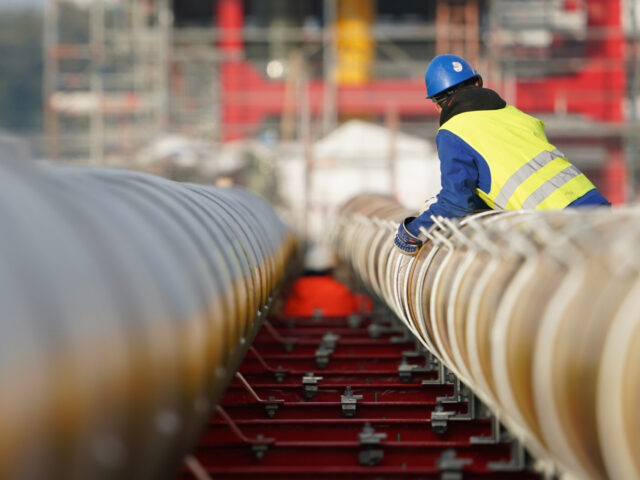The European Union has seen imports of liquid natural gas from Russia rise to record levels this year, sending billions to Moscow while waxing poetic about their support of Ukraine.
Though shipments of natural gas sent via pipelines from Russia to Europe have fallen sharply since the full-scale invasion of Ukraine in February, Europe has ironically turned to Russian liquefied natural gas (LNG), a chilled form of the gas that can be shipped in sea tankers, to make up the difference.
According to research conducted by the energy market analysis firm ICIS for the German business newspaper Handelsblatt found that imports of LNG from Russia rose by 21 per cent over pre-war levels to the EU states and Great Britain. The analysis found that between January and November of this year, the EU plus the UK paid Moscow nearly 27 billion euros ($28.4/£23.5 billion) in exchange for the record flows of liquid natural gas.
The European money spent on Russian LNG alone, is just under the total aid that EU institutions and member states have sent to Ukraine since the start of the full on war in February. The Kiel Institute for the World Economy Ukraine aid tracker has found that the EU has collectively sent 29 billion euros in military and financial assistance.
While European nations have been largely successful in filling up their gas storage containers prior to the winter, the true test could start to begin in the Spring. Supplies of liquid natural gas on the open market were artificially higher than normal this year given the reduced manufacturing output of Communist China due to Beijing’s draconian zero-Covid strategy, which has severely impacted production.
“We expect around ten billion cubic meters to be missing from the global LNG market next year,” says ICIS analyst Andreas Schröder said.
This has also seen China resell Russian gas back onto the world market, meaning that the actual amount or Russian-origin LNG purchased by the EU this year could be much higher in reality. Much LNG imported to Britain, which comes from around the world, is then regasified and then exported to Europe too.
What Principles? LGBT-Germany Agrees to Buy Gas From Islamic Qatarhttps://t.co/iwhPdtqBAO
— Breitbart London (@BreitbartLondon) November 29, 2022
Germany, the EU’s largest economy, has been scrambling to make up for the loss of pipeline gas and to find alternatives to Russian liquid natural gas. At present, the United States, Qatar, Nigeria, Algeria, and Russia represent the largest importers of LNG to the bloc, with the U.S. being largest supplier.
Schröder said that currently “13 percent of European LNG imports currently come from Russia – and the quantity is growing strongly.”
Following the outbreak of war in Ukraine, Germany has sought to expand its relationship with the Sharia state of Qatar, signing a deal last month to for the Gulf state to supply up to two million tonnes of natural gas to Germany per year.
Meanwhile, the European Union, alongside the United States, Australia and the G7, is attempting to impose a price cap on Russian crude oil of $60 per barrel. The cap, which came into effect on Monday, has yet to see a significant impact on the markets, with prices largely staying stagnant in afternoon trading. In addition to setting a cap on price, the EU will also be looking to ban most oil from being imported to the bloc.
It is unclear how much the measure will impact Moscow’s thinking in terms of the war in Ukraine, given that the set price level is not low enough to have much consequences financially and the fact that Russian energy exporters can still turn to Communist China, India, and Turkey to unload their oil, albeit at a steep discount.
“At this price level, that outlook really doesn’t change much. But what is key is how much volume Russia would be able to sell,” Macro-Advisory Russian economy analyst Chris Weafer told the Associated Press.“And that depends not only on the willingness of Asian buyers to continue buying Russian oil, but also what is the physical ability of Russia to shift that oil.”
Exclusive Video: Western Leaders Have ‘Misplaced Optimism’ in Ability to Defeat Russia, Says German MEP https://t.co/GHINdudSpz
— Breitbart London (@BreitbartLondon) November 26, 2022
Follow Kurt Zindulka on Twitter here @KurtZindulka

COMMENTS
Please let us know if you're having issues with commenting.